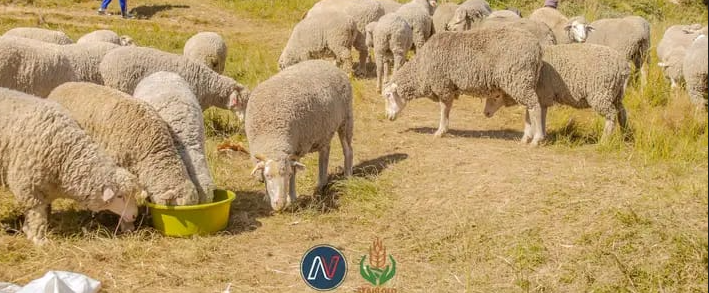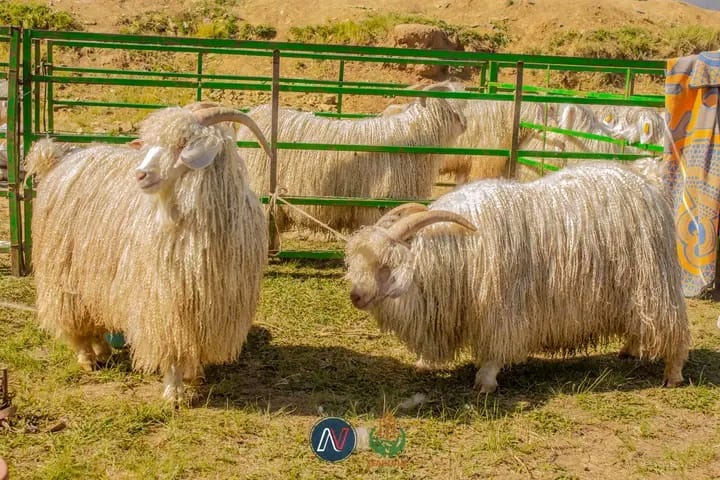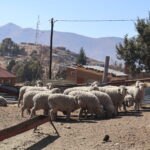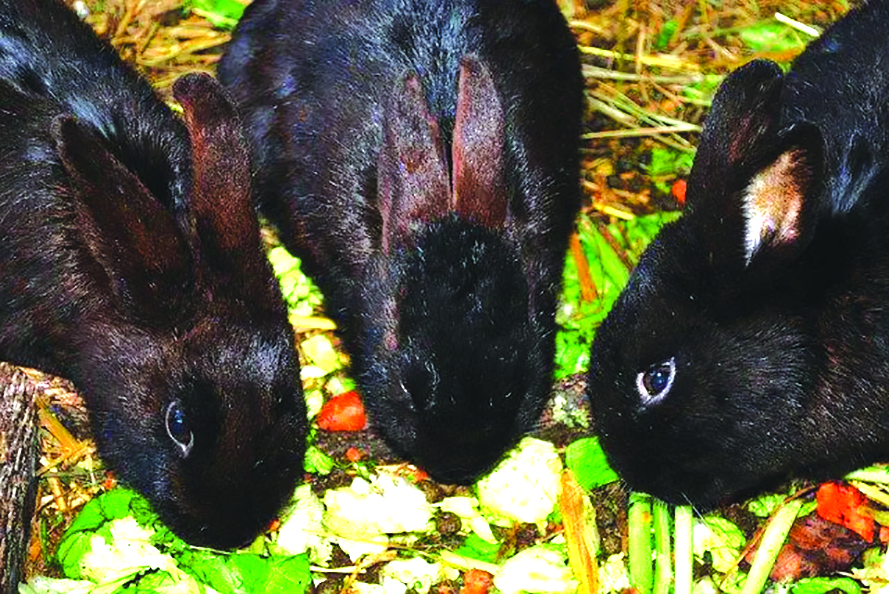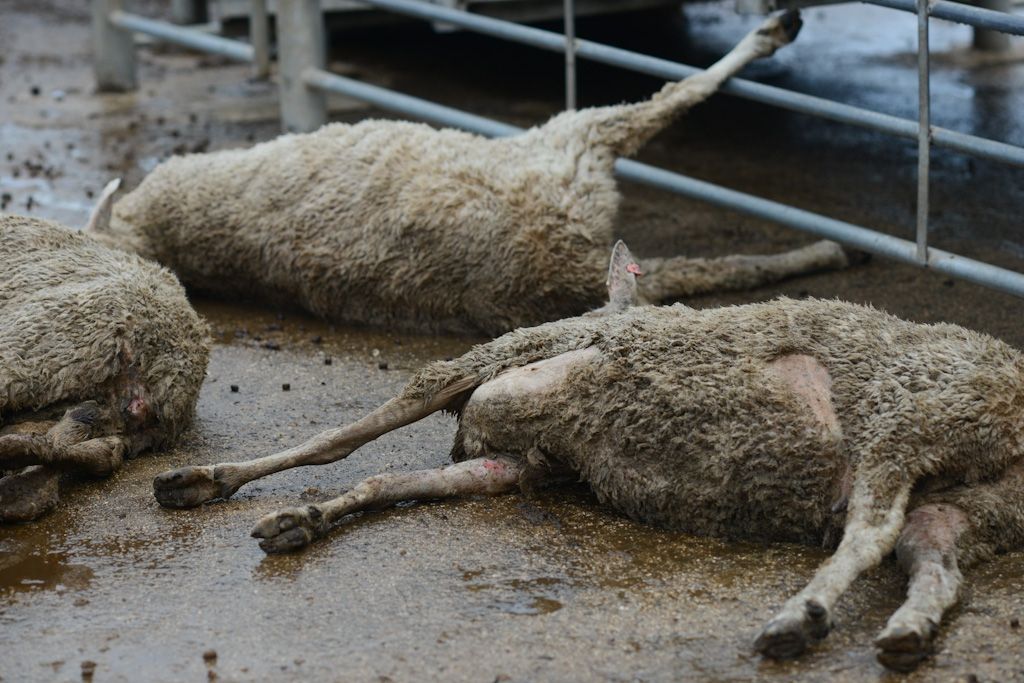By Kabelo Masoabi
Lesotho’s agricultural sector is taking bold steps to reduce its reliance on imported hybrid sheep and goats, which cost the country over M40 million annually.
This initiative, spearheaded by the Lesotho National Wool and Mohair Growers Association (LNWMGA), aims to boost local production of high-quality livestock, ensuring a sustainable supply of premium fibres and meat.
Mokoenehi Thinyane, LNWMGA Chairperson, highlighted the association’s commitment to breeding superior livestock within Lesotho’s borders.
“Our goal is to establish a self-reliant agricultural ecosystem where farmers no longer depend on imported breeds. This strategy will enhance the quality of our livestock, boost local economies, and empower farmers to thrive in a competitive global market.”
To this end, LNWMGA has mobilised its 40,000 members, launching a specialised breeding program in Quthing.
The program, according to Thinyane, focuses on producing high-grade sheep and goats, renowned for their superior wool, mohair, and meat quality.
“These improved breeds are tailored to withstand our local conditions while producing yields that meet international standards,” Thinyane noted.
Recognising the critical role of nutrition in livestock development, the association has dedicated significant resources to feed production.
“We manage 63 hectares in Tele and 48 hectares in Qomoqomong for cultivating specialised feeds through block farming,” Thinyane explained.
This, he said, ensures that improved livestock breeds receive the proper nutrition necessary for optimal growth and productivity.
In a move to further support local farmers, LNWMGA has announced an upcoming auction in January. This event will showcase improved breeds of ewes and rams developed domestically.
“The auction aims to make high-quality livestock accessible to all farmers, including King Letsie III, who is an advocate for agricultural development in Lesotho.”
The Minister of Agriculture, Food Security, and Nutrition, Thabo Mofosi, commended the efforts to enhance Lesotho’s livestock industry, emphasising the significance of the newly inaugurated Sheep Start Centre in Quthing, which is poised to transform sheep and goat production in the country.
“The centre is equipped with cutting-edge technology, including machinery for long-term sperm storage and artificial insemination. To further strengthen this initiative, the ministry is acquiring a nitrogen plant to support the reproduction process, ultimately increasing wool and mohair production,” the minister said.
“Wool and mohair are vital to our rural economy, contributing 60 percent of agricultural exports and supporting over 25 percent of the rural population,” Mofosi said, stressing that Lesotho remains the world’s second-largest producer of mohair and underscoring its critical role in the global market.
Despite its importance, the wool and mohair sector faces numerous challenges, including climate change, unreliable input supplies, overstocking, and poor land conditions, which continue to hamper production. These issues have led to fluctuating yields and limited competitiveness on the international stage.
To address these challenges, earlier this year, the United Nations’ International Fund for Agricultural Development (IFAD) signed a financing agreement with Lesotho for the Wool and Mohair Value-chain Competitiveness Project (WaMCoP).
The seven-year WaMCoP initiative aims to foster inclusive and sustainable economic growth by creating private-sector employment opportunities.
Special emphasis is placed on empowering underrepresented groups, with 50 percent of project participants being women and 35 percent being youth.
The project seeks to establish a responsible production certification system aligned with global market guidelines. This system will introduce traceability, allowing buyers to verify and identify wool and mohair produced under specific farming practices.
“Traceability will enhance Lesotho’s global competitiveness and ensure that farmers receive fair compensation for their high-quality produce,” said IFAD Country Director for Lesotho, Edith Kirumba.
Financial Support and Long-Term Impact
The WaMCoP project is backed by a diverse funding pool:
– IFAD: US$20.2 million
– OPEC Fund: US$20 million
– Global Environment Facility (GEF): US$6 million
– Government of Lesotho: US$8 million
– Private sector and project beneficiaries: US$7.3 million
In total, the project boasts a US$72 million budget, with an additional US$11.8 million financing envelope for new initiatives.
One of WaMCoP’s key objectives is to establish a revolving fund to help farmers access input supplies and in-kind loans. Additionally, a Wool and Mohair Fund and Enterprise will unite all value chain stakeholders, ensuring the sector’s sustainability and governance.
A Sustainable Future for Lesotho’s Farmers
As Lesotho continues to strengthen its wool and mohair industry, local farmers stand to benefit from improved livestock breeds, better market access, and increased incomes. The combined efforts of LNWMGA, the government, and international partners like IFAD signal a brighter future for Lesotho’s agricultural sector.
“Through these initiatives, we aim to not only sustain our ranking as a leading mohair producer but also ensure that our farmers enjoy the full benefits of their hard work,” concluded Thinyane.
This ambitious push for self-reliance and innovation marks a turning point for Lesotho, demonstrating that local farmers can thrive on both domestic and international fronts with the right support and vision.
Summary
- ”The Minister of Agriculture, Food Security, and Nutrition, Thabo Mofosi, commended the efforts to enhance Lesotho’s livestock industry, emphasising the significance of the newly inaugurated Sheep Start Centre in Quthing, which is poised to transform sheep and goat production in the country.
- To further strengthen this initiative, the ministry is acquiring a nitrogen plant to support the reproduction process, ultimately increasing wool and mohair production,” the minister said.
- “Wool and mohair are vital to our rural economy, contributing 60 percent of agricultural exports and supporting over 25 percent of the rural population,” Mofosi said, stressing that Lesotho remains the world’s second-largest producer of mohair and underscoring its critical role in the global market.

Your Trusted Source for News and Insights in Lesotho!
At Newsday Media, we are passionate about delivering accurate, timely, and engaging news and multimedia content to our diverse audience. Founded with the vision of revolutionizing the media landscape in Lesotho, we have grown into a leading hybrid media company that blends traditional journalism with innovative digital platforms.


